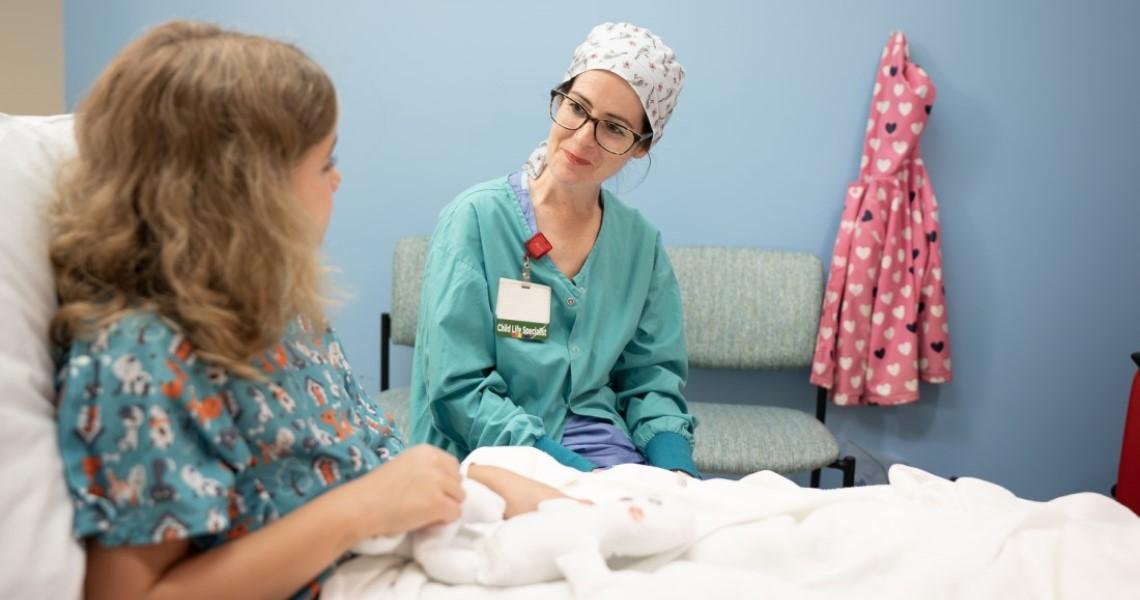For many children, a single traumatic medical experience – especially involving needles – can leave lasting scars. Research shows that up to 25% of adults with needle phobia avoid medical care entirely, often tracing their fear back to childhood. At UVM Medical Center’s Comfort Zone, a small yet passionate team of pediatric nurses and child life specialists is working to change that narrative.
The Comfort Zone is a pre-procedural space designed to help children – and now, young adults with complex care needs – navigate medical procedures with less fear and more support. Their approach is rooted in trauma-informed care, patience and personalization.
“We don’t hold kids down, we don’t force them – we get to know them and work with them on their terms,” says Jess Putvain, one of the pediatric nurses pioneering the Comfort Zone model. “Instead of rushing through procedures, we take time to understand each patient’s unique needs, fears and sensory sensitivities. It pays off in the long run, building trust and helping them get the care they need.”
The team uses tools like numbing cream, comfort positioning, distraction and even desensitization visits where children are gradually introduced to medical equipment in a non-threatening way.
“We start from scratch,” says Jennifer Eddy, a child life specialist who works in the Comfort Zone with Putvain. “We build rapport, find out what the child likes and incorporate that into the plan. When we provide desensitization, or exposure therapy, it might take several visits, but it works.”
The team also collaborates closely with families, often calling ahead to learn about past experiences and triggers. The team even sends congratulatory cards to families after visits, recognizing the courage it takes just to walk through the door.
“Some parents come in saying: ‘this will never work,’ because all they’ve known is trauma,” says Patti Haidar, who is helping to standardize this care model throughout the Children’s Hospital through her work with the Pediatric Pain Committee. “But then they see what’s possible here.”
The Comfort Zone’s impact extends beyond children. Recognizing a gap in care for adults with complex care needs and developmental disabilities, the team launched a pilot program to support patients aged 18–26. These young adults often struggle to transition out of pediatric care, especially when it comes to procedures like blood draws.
The pilot program offers the same thoughtful, individualized care to adults who need it. One young woman, for example, was able to complete a blood draw without medication or numbing cream – she just needed time and understanding. “She needed us to go at her pace,” says Haidar. “And we did.”
The Comfort Zone’s work is gaining attention. Posters on pain management and expansion have sparked interest across the hospital, and the team is advocating for broader adoption of their model. “Our dream is to have a Comfort Zone for adults,” says Haidar. “There’s a real need.”
As medicine advances and more children with complex needs live into adulthood, the demand for compassionate, specialized care will only grow. The Comfort Zone is leading the way—one patient, one poke and one positive experience at a time.
This initiative strongly supports the Quality standard by enhancing pediatric care through consistency, safety, and empathy. It also reinforces the Safety standard by reducing trauma and supporting a respectful, child-centered approach to care.

